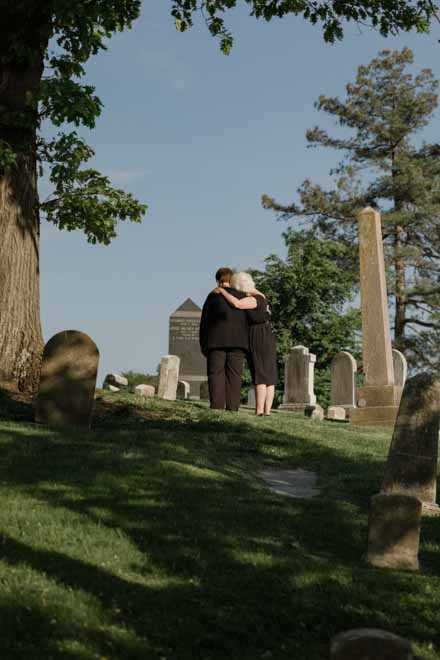A funeral trust is an option for final expenses. A funeral trust is an inter vivos trust created by an individual, while alive, with the objective of covering final expenses associated with future funeral arrangements.
Anyone competent and of legal age can set up a funeral trust. Family members can open a trust for immediate family members, such as parents, siblings, spouses, children, or stepchildren.
Bank Rate’s recent article entitled “The pros and cons of funeral trusts” advises to first choose a reputable funeral home provider.
You can accomplish this by looking at online reviews or use local word of mouth recommendations to find the top funeral home provider with a good reputation.
Funeral trusts are also sold through insurance companies, in which case they’re typically funded with single-premium whole life insurance. Next, see how much your funeral will cost and check the funeral cost limitations set by your state.
You can then compare the various methods of funding a prepaid funeral trust. Cash, savings bond, CD’s, payment plans, or final expense insurance (burial life insurance) may be used to fund a prepaid trust.
Consider consulting an elder law attorney. He or she can help consumers understand the legalities and tax requirements involved in funeral trusts.
You then need to confirm that proceeds from the trust will be accepted as payment. If the funeral home you selected won’t accept the funds from the trust as payment for services, your family could be left confused and frustrated after your death.
Ask an elder law attorney about relocation regulations before opening your funeral trust. You should confirm that if you move across state lines, the trust can be changed to the new state. If you relocate, be certain that you change the trustee and beneficiary to the new funeral home you’ll use.
Make certain that family members are aware of your plans. You can provide your executor and all your heirs with a copy of the trust, as well as contact information for the funeral home and the beneficiary if different.
You then need appoint an independent trustee, who will audit the funeral bill for reasonableness and pay any excess to the family.
Finally, don’t forget to fund the trust. A funeral trust is an option for final expenses, but only if it is properly funded. If you would like to learn more about funeral planning, and additional issues related to probate, please visit our previous posts.
Reference: Bank Rate (Feb. 8, 2021) “The pros and cons of funeral trusts”
Photo by RODNAE Productions






